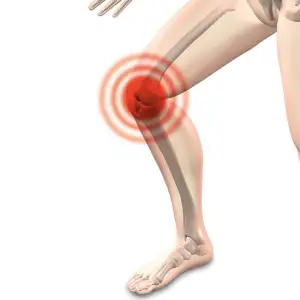Decoding Pretzels: Unveiling the Nutritional Value of this Classic Snack

- Understanding the Ingredients: What Goes into Making Pretzels
- Calorie Content: Examining the Energy Density of Pretzels
- Sodium Levels: Analyzing the Salt Content in Pretzels
- Fat Content: Evaluating the Amount of Fat in Pretzels
- Fiber Content: Assessing the Dietary Fiber in Pretzels
- Micronutrients: Highlighting the Vitamins and Minerals in Pretzels
- Health Benefits: Discussing the Potential Positive Effects of Pretzels
- Moderation and Portion Control: Emphasizing the Importance of Balance
Pretzels have been a beloved snack for centuries, with their unique shape and satisfying crunch. But beyond their taste and texture, have you ever wondered about the nutritional value of pretzels? In this article, we will delve into the ingredients that make up this classic snack and examine its calorie content, sodium levels, fat content, fiber content, and micronutrient profile. By understanding the nutritional composition of pretzels, we can better appreciate their role in a balanced diet and determine whether they are a healthy snack option.
Understanding the Ingredients: What Goes into Making Pretzels
Pretzels are a classic snack that has been enjoyed for centuries. But have you ever wondered what goes into making these delicious treats? The main ingredients in pretzels include flour, water, yeast, and salt. Flour is the base of the dough and provides the structure for the pretzel. Water is necessary to hydrate the dough and activate the yeast. Yeast is responsible for fermentation, which gives pretzels their light and airy texture. Lastly, salt is added to enhance flavor and help with preservation. These simple ingredients come together to create a snack that is loved by many.
Calorie Content: Examining the Energy Density of Pretzels
When it comes to snacking, keeping an eye on the calorie content is essential. Pretzels, a beloved classic snack, are known for their crunchy texture and satisfying taste. But how do they fare in terms of calories? Let's delve into the energy density of pretzels.
On average, a one-ounce serving of pretzels contains around 110-120 calories. This may vary slightly depending on the brand and type of pretzel. While this calorie count may seem reasonable, it's important to remember that portion sizes can quickly add up.
Pretzels are relatively low in fat compared to other snacks like chips or cookies. However, they do contain some added oils during the baking process, which contributes to their calorie content. It's worth noting that flavored pretzels or those coated with toppings like cheese may have higher calorie counts due to additional ingredients.
To enjoy pretzels without going overboard on calories, it's crucial to practice portion control. Instead of mindlessly munching from a large bag, measure out a serving size and savor each bite. Pairing pretzels with protein-rich dips or spreads can also help increase satiety while adding nutritional value.
While pretzels can be part of a balanced diet, it's essential not to rely solely on them as a source of nutrition. Incorporating a variety of whole foods such as fruits, vegetables, lean proteins, and whole grains is key for overall health and wellbeing. Remember, moderation is key when enjoying any snack!
Sodium Levels: Analyzing the Salt Content in Pretzels
One important aspect to consider when evaluating the nutritional value of pretzels is their sodium levels. Pretzels are known for their salty taste, and this is due to the high amount of salt used in their preparation.
On average, a single serving of pretzels contains around 400-500 milligrams of sodium. This may not seem like much, but it can quickly add up if you consume multiple servings or pair them with other salty snacks or condiments.
High sodium intake has been linked to various health issues such as high blood pressure and an increased risk of heart disease. It's essential to be mindful of your overall sodium intake and balance it with other low-sodium foods throughout the day.
If you're watching your sodium intake, there are low-sodium or reduced-salt options available in the market. These alternatives can provide a healthier option without compromising on taste. Always check the nutrition label and choose wisely based on your dietary needs.
While pretzels can be enjoyed as an occasional treat, it's crucial to be aware of their salt content and consume them in moderation. Pairing them with fresh fruits or vegetables can help offset some of the sodium intake and provide a more balanced snack option.
Fat Content: Evaluating the Amount of Fat in Pretzels
When it comes to the fat content in pretzels, they are generally considered a low-fat snack option. A typical serving of pretzels contains around 1-2 grams of fat. This makes them a healthier alternative to other high-fat snacks like potato chips or cookies. However, it's important to note that some flavored or coated pretzels may have higher fat content due to added ingredients. So, if you're watching your fat intake, it's best to opt for plain or lightly salted pretzels.
Fiber Content: Assessing the Dietary Fiber in Pretzels
Fiber is an essential component of a healthy diet, and pretzels can contribute to your daily fiber intake. While they may not be as high in fiber as whole grains or fruits, they still contain a decent amount. On average, a serving of pretzels provides about 1-2 grams of dietary fiber. This may not seem like much, but every little bit counts when it comes to meeting your daily fiber goals. Fiber helps regulate digestion and promotes feelings of fullness, which can aid in weight management. So, while pretzels may not be the highest source of fiber, they can still be a part of a balanced diet that includes other fiber-rich foods.
Micronutrients: Highlighting the Vitamins and Minerals in Pretzels
Micronutrients play a crucial role in our overall health and well-being. While pretzels may not be the first snack that comes to mind when thinking about nutrient-rich foods, they do contain some essential vitamins and minerals. Pretzels are a good source of iron, which is important for oxygen transport in the body. They also provide small amounts of calcium, magnesium, and zinc, which are necessary for bone health and immune function. Additionally, pretzels contain B-vitamins such as thiamine and niacin, which are involved in energy metabolism. Although pretzels may not be a significant source of micronutrients compared to other foods, they can still contribute to our daily nutrient intake when consumed as part of a balanced diet.
Health Benefits: Discussing the Potential Positive Effects of Pretzels
Pretzels may not be the most nutrient-dense snack, but they do offer some health benefits. Firstly, they are low in fat, making them a healthier alternative to chips and other fried snacks. Secondly, pretzels are a good source of carbohydrates, providing quick energy for your body. Additionally, they contain small amounts of iron and B vitamins, which are essential for maintaining healthy blood cells and boosting metabolism. However, it's important to note that these benefits can only be realized when pretzels are consumed as part of a balanced diet.
Moderation and Portion Control: Emphasizing the Importance of Balance
Moderation and portion control are key when it comes to enjoying pretzels as a snack. While they can be a tasty and satisfying treat, it's important not to overindulge. Pretzels are relatively low in calories compared to other snacks, but consuming them in excess can still contribute to weight gain. To maintain a healthy balance, it's recommended to enjoy pretzels in moderation and be mindful of portion sizes. Pairing them with nutrient-rich foods like fruits or vegetables can also help create a well-rounded snack that satisfies both taste buds and nutritional needs. Remember, balance is the key to enjoying pretzels as part of a healthy diet.
In conclusion, pretzels can be a part of a healthy snack option when consumed in moderation and as part of a balanced diet. While they are low in fat and cholesterol-free, their high sodium content should be taken into consideration, especially for individuals with hypertension or heart conditions. However, pretzels also offer some nutritional benefits such as being a good source of carbohydrates and providing small amounts of dietary fiber and essential vitamins and minerals. It is important to practice portion control and pair pretzels with other nutritious foods to maintain a well-rounded diet.
Published: 27. 12. 2023
Category: Health



